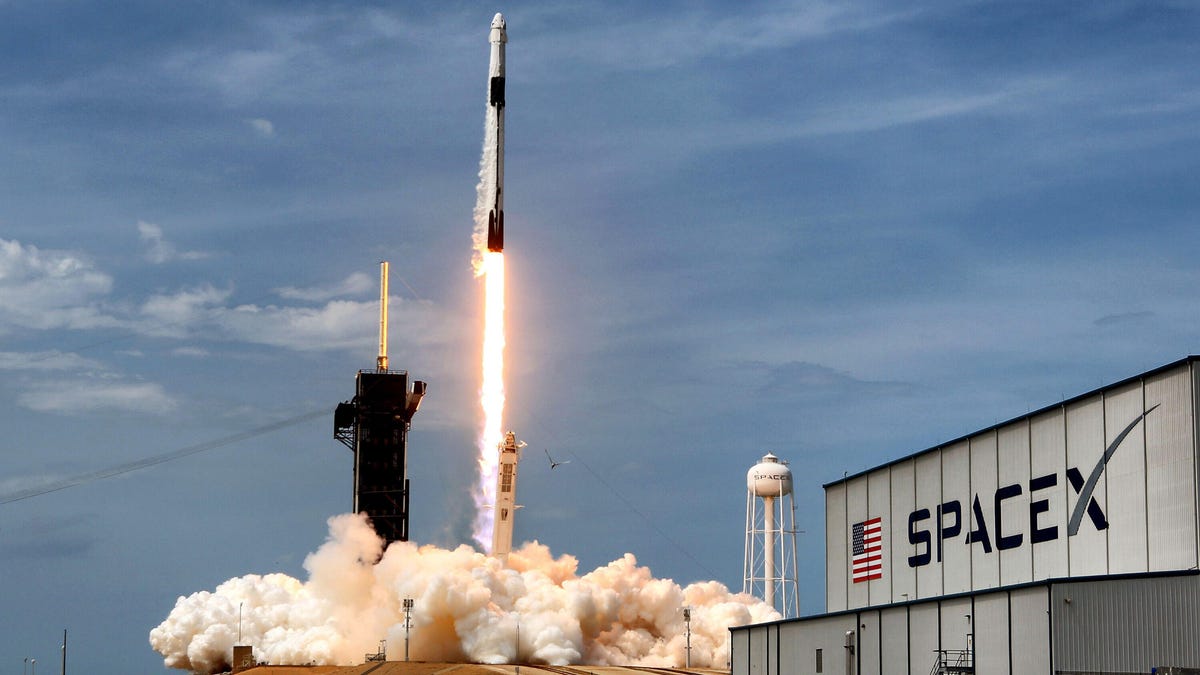Dish Blasts SpaceX Claim That New 5G Band Would Interfere With Starlink Internet
Dish and a coalition of companies say ground-based 5G and satellite internet can coexist.

SpaceX delivers its Starlink terminals into orbit via rockets.
As the Federal Communications Commission decides whether the 12 GHz signal spectrum -- currently used to beam down satellite TV as well as internet from SpaceX's Starlink service -- should be opened up to ground-based 5G service, burgeoning telecom Dish has pushed back on SpaceX's claim that its satellite internet would be disrupted should the spectrum be used for 5G.
Dish and SpaceX have clashed over the issue since the FCC started accepting comments on opening 12 GHz to 5G back in January 2021. In the latest bout, SpaceX submitted a report to the FCC in June saying Starlink customers would see total service outages 74% of the time if 5G users shared the 12 GHz spectrum. On Thursday, Dish and others in the 5G for 12 GHz coalition responded, pushed back, criticizing the report's methodology and hypothetical scenario SpaceX used to arrive at its results. Dish reiterated that Starlink and ground-based 5G can operate together.
"The only independent engineering analysis demonstrates that co-existence is eminently possible between satellite and 5G operations. Starlink wants to completely sideline 500 MHz of critical mid-band spectrum from being used for 5G," a Dish spokesperson said in a statement to CNET.
Dish owns a 500 MHz slice of the 12 GHz spectrum, which is used for satellite TV service. Starting in 2016, the company started pressing the FCC to allow it to be used for 5G communications as Dish explored ways to provide phone service. Then in 2020, Dish absorbed mobile spectrum to become the fourth major US telecom as part of a complex deal enabling the merger of T-Mobile and Sprint. While Dish has bought more 5G spectrum licenses in the years since, it's sought to capitalize on the 12 GHz spectrum it already owns.
SpaceX relies on the 12 GHz spectrum to deliver internet from its over 2,400 Starlink satellites operating in orbit to around 400,000 subscribers worldwide. The company urged its customers to oppose opening up the 12 GHz spectrum to 5G, and over 70,000 of them left comments on the FCC's site to protect their satellite internet service, according to PCMag.
Read more: Not All 5G Is the Same: All the Flavors and Names Explained

